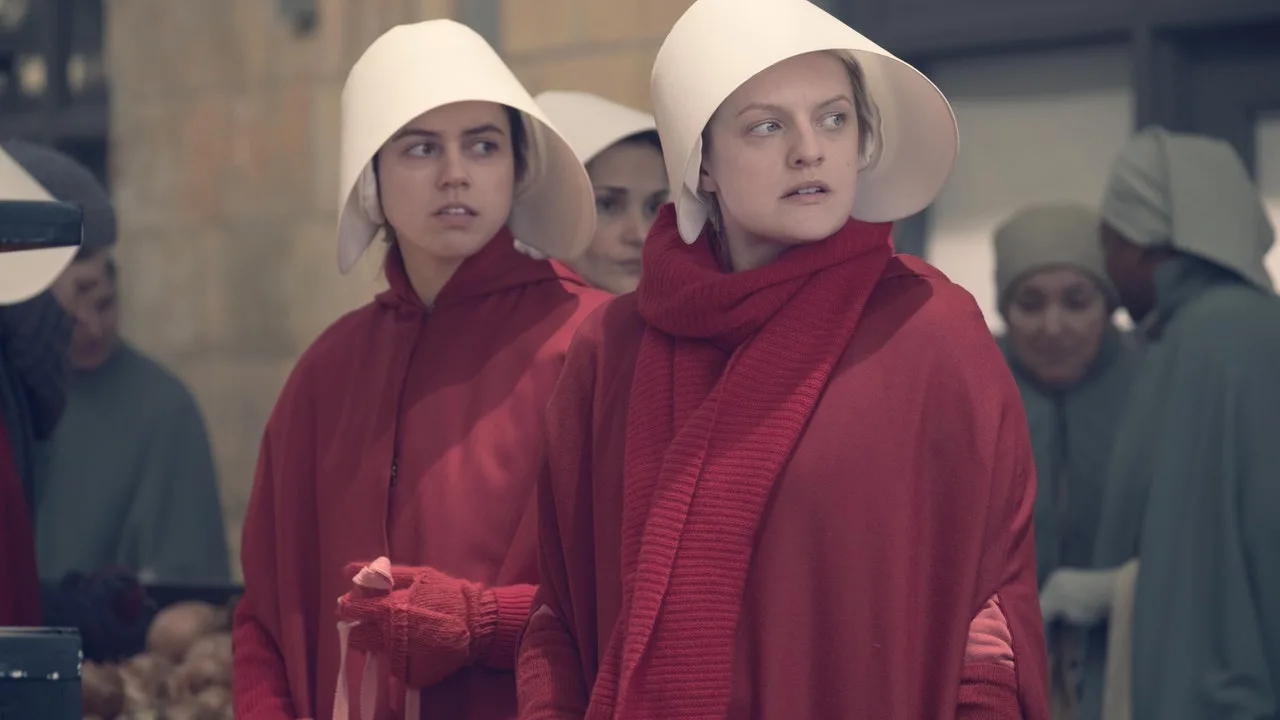The unthinkable has happened again—which, I suppose, makes it not all that unthinkable. The hopeful and fearful slogan of the Kamala Harris campaign,
The unthinkable has happened again—which, I suppose, makes it not all that unthinkable. The hopeful and fearful slogan of the Kamala Harris campaign, “We Are Not Going Back,” was wholly wrong: like the lone survivor of a horror movie who assumes they are unthreatening, only to be caught by the killer right before the end credits, we now find ourselves helplessly receding to a version of the country we escaped four years ago. The question now is, will it feel the same as it did the last time? What will the national temperament be for the next four years?
To predict the coming mood, it may be helpful to look at the film and television produced during the last terrible epoch, when a stunned half of the nation—a vast handful of them working in entertainment—attempted to process the strange recent world they’d suddenly found themselves in.
Though, there were only four years in which Hollywood could react to their immediate times. Often, that process takes longer. More often than not, then, we turned to things that were in production before Trump’s first election and divined from them something defiant—an Obama-era triumphalism repurposed as resistance. Movies like 2018’s Black Panther and 2017’s The Post, and TV shows like 2017’s The Handmaid’s Tale, all felt more pertinent than they might have had Hillary Clinton won in 2016—and yet they were not specifically aimed at Trumpism.
Mike White’s The White Lotus, by contrast, was developed during the dwindling final months of Trump’s first term, and is certainly in conversation with the presiding sense that the wealthy were crushing everyone else underfoot. But like 2017’s Get Out, the first season of The White Lotus is more concerned with the predations and exploitations of folks who might largely call themselves liberal. Neither work is inveighing against despotic conservatism, really.
Maybe Trumpism was too huge and sinister to confront all at once, in such a tiny time. But particular aspects of our ailing age were mined during the first Trump era—perhaps most visibly the #MeToo reckonings, which gained international prominence toward the end of Trump’s first year in office. Movies like Promising Young Woman, Bombshell, and The Assistant gathered the experience of many people over far more years than Trump was in office, becoming referendums against men like the president and the systems that supported him. Such a cultural watershed was likely to happen no matter who was in the Oval Office in 2017, but it was perhaps heightened, given special relevance, by the looming presence of the man in charge.
Adam McKay went after climate denialism—a position of which Trump is a proponent—in his 2021 allegorical satire Don’t Look Up, featuring Meryl Streep as a clueless, vain, self-interested POTUS. She was only a side character in a broader circus of idiocy about our coming environmental doom, one that damned the complacency of everyone. James Gray’s probing and grave film Armageddon Time, a striking memoir about complicity, evoked Trump’s specter, but from the distance of the past. So, too, does this year’s The Apprentice, about the making of a youthful real estate mogul.
So what might come from another four years of Trump, a followup term disconnected from its first by nearly half a decade? Certainly there is shock that Trump won—but this time around, that horror is laden with more resignation than I felt in 2016. Former resisters may be wearied by not just the injury of the past, but by COVID, by the continued erosion of civil rights, by the culture’s increased animus against women, people of color, queer people, immigrants.
That weariness has led to a once creeping sense, now nearly confirmed, that nothing can be done to stop the forces of Trumpism—that something about this country has indeed irrevocably changed, that we have tilted into a meaner, uglier age that can no longer be dismissed as a four-year blip. And what good is mere art to combat something like that?
In a few years’ time, I expect to see darker, bleaker American fare, more in line with the justifiably nervous, cynical work of the post-9/11 years than anything that came out in 2016-2020. Much of the art of that period was spoiling for a fight, rudely shaken out of the deceitful stasis of the Obama years. Maybe such darkness and bleakness will directly confront Trump; after all, skirting around him or metaphorizing him didn’t work. Then again, nothing else might, either. In that case, the only thing to do would be to stare right at the howling abyss and have a wallow.

COMMENTS